
MA Make-up and Hair Design Futures
Explore the rapidly evolving field of designing for future bodies, beauty cultures and creature design using speculative design strategies and augmented realities
Find out more
Unleash your imagination to create characters for stage and screen - develop your portfolio of work using the latest design techniques and learn from experienced industry experts.
Contact international admissions
Email: Call:Push the limits of your creative boundaries on this dynamic prosthetics and special effects degree. With a hands-on approach to design for a range of contexts, the course offers experience in three key industry-focused pathways, supporting you to develop the skills and experience to enter a range of careers in film, TV, games design, and theatre after graduation. From character creation to specialist technical skills, this course aims to develop your understanding alongside your technical abilities.
You'll be encouraged to take an explorative, experimental and technical approach to prosthetics application, using materials and creative development processes to produce innovative and contemporary special effects design work. This includes sculpting, moulding and casting for character and creature effects, refined application of make-up and hair effects, and designing with 2D and 3D modelling.
Using advanced academic research methodologies, developed through critical and interdisciplinary approaches to design, you'll devise intellectual, creative and innovative responses to challenging concepts, relevant to contemporary design and speculative futures.
You'll also have the opportunity to collaborate with students on other creative courses, such as television, film, and theatre, to help you contextualise your place within the prosthetics and special effects industry.
You will be taught by an academic team with excellent reputations as practicing professional designers and researchers, as well as an extensive range of visiting lecturers and international visits to gain vital industry insight.
We also provide in-house competitions, with prizes from our kit suppliers, Neil’s materials and Pigs Might Fly. And we encourage our students get regular experience through Halloween events such Terror Island and the Horror Maze, and regular experience with MAST, Mayflower theatre and The Grange festivals. In your final year there is the opportunity to work with our professional SFX team at the Prosthetics Event, across a range of national theatre productions or at IMATS in London.
If you’re looking to study our prosthetics and special effects degree but don’t have the relevant qualifications or experience, the art and design foundation year will help you develop the core skills and knowledge to progress. Find out more about the art and design foundation year.
Our creative degrees allow our students to develop a critical eye for design with a knowledge of different design approaches and problem solving techniques. Take a look at some of the great work they produce.

Solent’s prosthetics and special effects design course is ideally suited to students who wish to expand their knowledge and develop their creative design skills in design, production and application - across theatre, film and TV. Applicants should have usually studied a creative subject and have a portfolio of related art and design work to show as part of their application to the course.
On leaving the course you will have a core skill set needed to work in industry, as well as the ability to design and develop new characters. You could gain entry level to work as a studio artist, sculptor or prosthetics designer. Your skills could also be well-placed in medical prosthetics for trauma injury, for the film and TV industry or for trauma response training. The course could also lead to further study at MA level for more developed and focused skills.
Students learn from a team with a broad range of academic and industry experience, who are have a desire to advance the industry and academic expectations of what prosthetics and special effects design can be.
The University cannot guarantee any particular members of staff will teach specific aspects of the course in the future, but will endeavour to ensure the teaching team maintains their balance of experience and qualifications.
Our specialist studios and workshops include industry-focused special effects studios, fibre glass lab, plaster room, 3D printing labs, make-up and hair design studios, photography studios including an infinity cove and a range of well-equipped IT suites.
Our vibrant campus brings state-of-the-art facilities to enhance your learning and elevate your student experience. Our award-winning teaching building, The Spark is centred around students and offers a stimulating study environment with flexible learning spaces. Away from studying, why not try out the gyms, fitness studios and sports halls in our £28 million Sports Complex, or watch a blockbuster film at our student-run cinema with Dolby Atmos audio.
Broaden your horizons by adding an international dimension to your CV – essential to achieving success in today’s fast-changing, global environment.
Studying, working or volunteering in another country could be the experience of a lifetime. Enhance your degree by developing important global skills such as knowledge of other countries, language skills, intercultural awareness, adaptability and confidence.
For more information, please email international.mobility@solent.ac.uk.
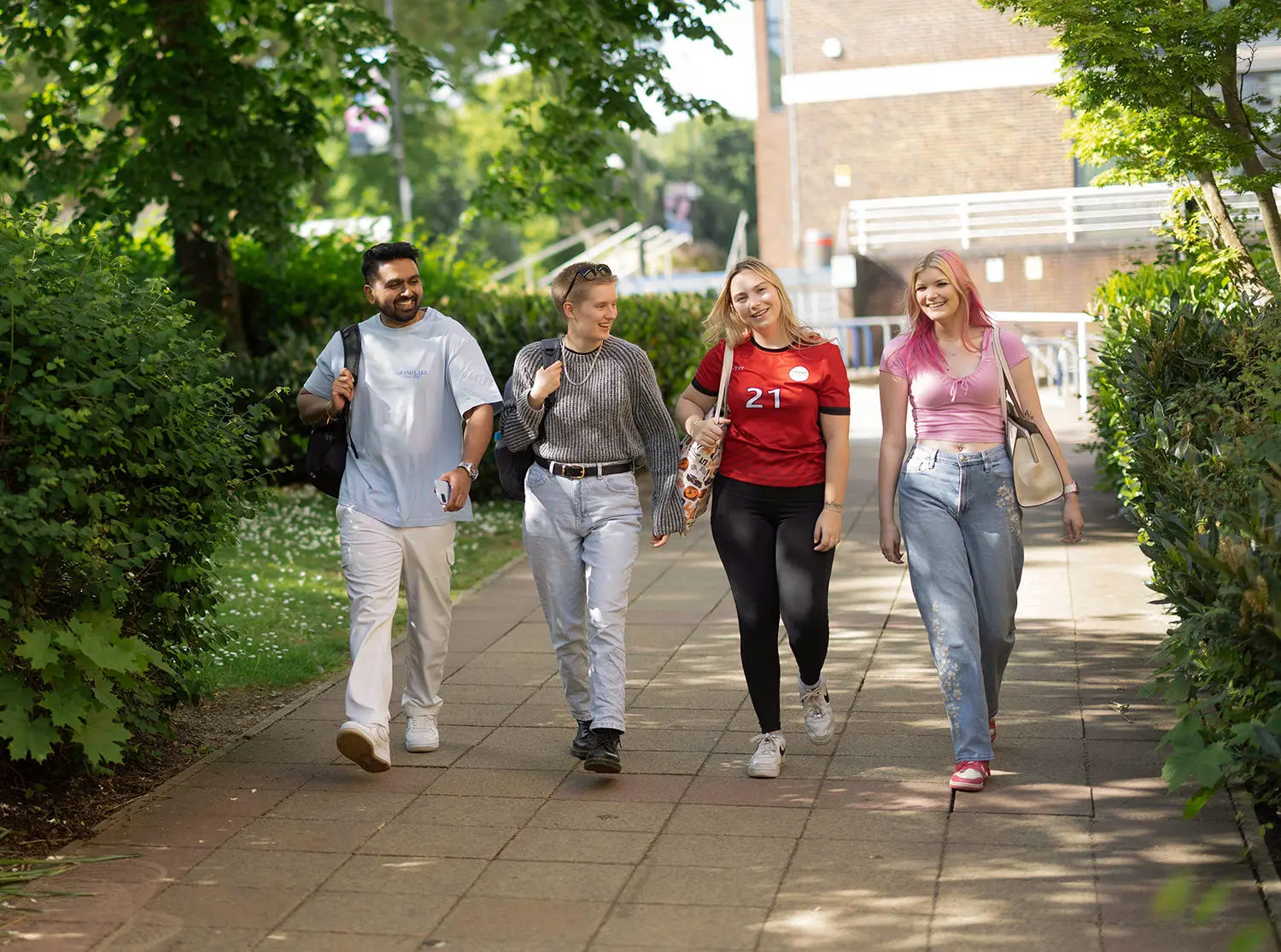
This module will develop your foundational understanding of anatomy, form and three-dimensional design through the creation of original sculpted props, maquettes and miniatures. You'll be introduced to essential observational, conceptual and modelling techniques that support the development of believable, narrative-driven designs.
This module introduces you to the fundamentals of image making practice - you will learn about the function and uses of cameras, lenses, lighting and post-production techniques. You'll explore both studio and location practice, with practical demonstrations and hands-on participation, and you'll be introduced to standard industry practices, such as model releases.
This module introduces you to the creative and technical challenges of digital sculpting within contemporary prosthetics, creature design and SFX production. You'll explore how artists translate narrative concepts into fully realised digital forms, addressing anatomical accuracy, efficient workflow management and iterative design processes. And through practice-led learning you'll gain hands-on experience with professional sculpting software and learn how digital assets support both virtual and physical fabrication pipelines.
In this module you'll develop your ability to use the fundamentals of prosthetic application through studio-led practice to create effective prosthetic wounds. You will use SFX relevant materials and techniques of sculpting and application to create realistic wound replication matching to contextual story telling and continuity.
This module will develop your understanding of your industry and help you position yourself within it through brand identity creation, freelancing skills and portfolio building. You'll build your personal brand through image portfolio creation, web production, and CV enhancement; and you will develop your technical skills in image construction through practical studio and location workshops.
This module supports you in developing more advanced digital design and fabrication skills that build on the foundations gained in your first year. You will explore digital approaches used across contemporary prosthetics, creature design, and related creative industries, working with processes such as digital sculpting, scanning, model preparation and digital-to-physical workflows.
In this module you'll develop your advanced understanding of advanced prosthetic effects through professional industry techniques. You'll build on foundational prosthetics and SFX skills to produce complex, realistic, and technically challenging effects for film and media production while exploring professional techniques such as life casting, blood pump construction, squish moulds, and complex wound replication.
In this module, you'll advance your ability to translate creature and character concepts into production-ready physical outcomes within industry-simulated workflows. You will design and create large-scale creature or character props and set pieces, adopting the structure, pace and expectations of professional SFX workshops and explore advanced mould-making techniques, multi-part mould construction, surface finishing processes and the logistics of fabricating oversized or complex forms.
In this module you will learn to independently employ practice-based approaches to research in the development and realisation of a creative project. Operating as an independent designer you will be develop, manage and realise of a creative research project. You will produce a substantial body of conceptually and technically advanced work, addressing an identified issue or design problem relevant to your own creative interests and visual culture.
You will create an authored body of work to a high professional standard, tailoring it to your specific areas of interest and chosen pathway. Your work will be informed by industry practice and you'll be encouraged to be both creative and innovative in your practice and research. You will need to implement a range of skills in image creation, design, web content, and exhibition curation, managing multiple elements into an industry ready portfolio.
In this module, you will be expected to complete 100 hours of work-based experience. Engaging in a professional environment will help you develop the skills and experiences to work competently within the creative industries and boost your confidence, while providing an insight into the various job roles available to you.
In preparation for your major project, you will learn to devise, plan, and discuss an independent creative project focused on your own specific creative and/or career interests and in a media of your own choosing. This is your opportunity to use your artistic, intellectual, research, and technical skills in the proposal of an ambitious, original and critically engaged creative research project.
Contact international admissions
Email: Call:As part of this course, you will study one module at a time, giving you the chance to build a deeper understanding and see the results of your hard work more quickly. With regular assessments and feedback, rather than exams all at once, you’ll also benefit from improved focus, and a more manageable workload.
Learn more about block teaching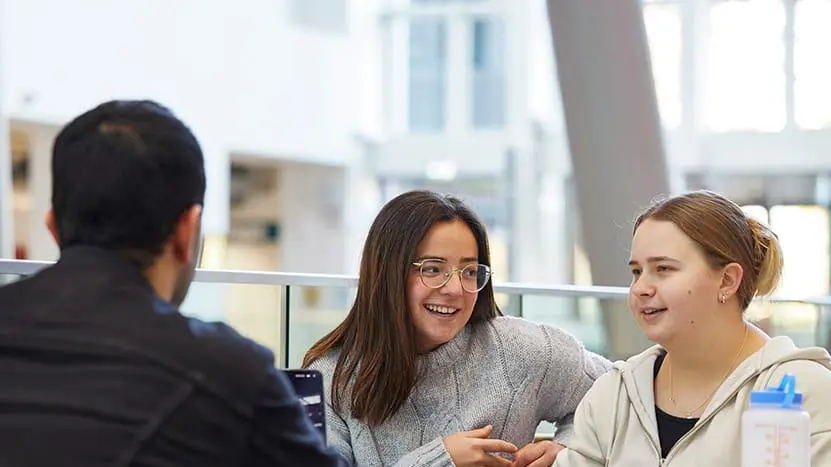
The student achievement team are on hand to help you succeed during your studies at Solent. They aim to contact you at key times during your time here with personalised information, advice and guidance, by email or phone.
The disability advice team provides information, advice and guidance for disabled students.
All students can access Succeed@Solent, Solent's online guide to getting better grades. It offers extensive, practical information and advice on topics such as academic writing, research and presentations.
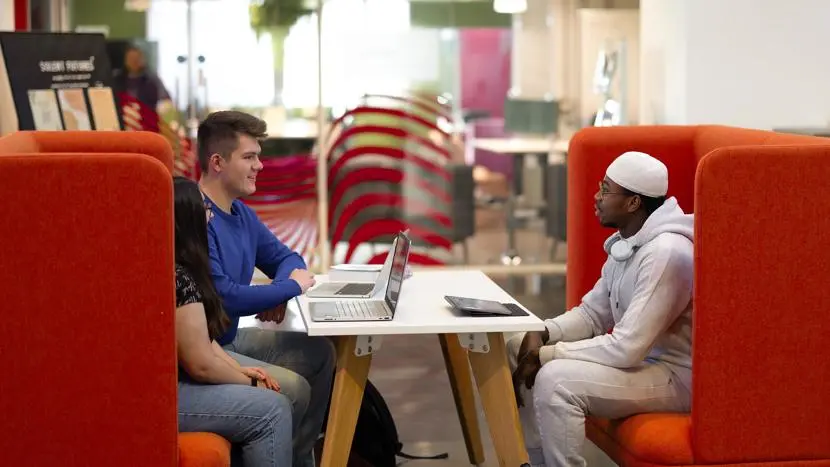
Special effects make-up artists focus on working on actors appearances for their role on screen in everything from ageing, to injury simulation, or even monster make-up, anything from what a regular make-up artist may be responsible for. This specialist role is key for many film and television productions, but can also extend to theatre, events and live entertainment.
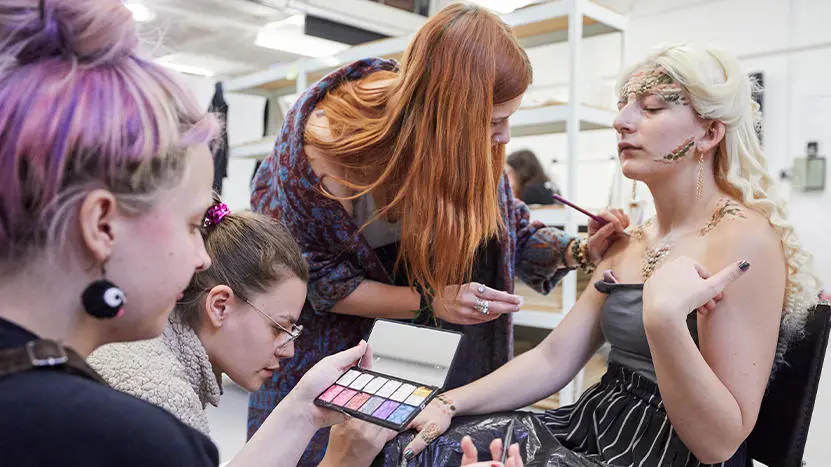
Typical day rate: £400
Trainee special technicians earn a minimum of £13.25 an hour, or a day rate of £145.75. Technicians (with five years' experience in the industry) earn a minimum of £37.10 an hour, or a day rate of £408.10. Senior technicians (with 10 years' experience) earn a minimum of £43.46 an hour, or a day rate of £478.06. Supervisors (with 15 years' experience) earn a minimum of £79.81 an hour, or a day rate of £877.91.
Typical day rate: £400
Trainees should receive no less than the national minimum wage or the London living wage. For a feature film, trainee make-up artists currently earn between £11 and £14 per hour. On major feature films, with budgets over £30million, a trainee make-up artist can earn £140 for a ten-hour day, while a key hair and make-up artist with several years' experience, will earn £410.
The stated salaries are published on prospects.ac.uk.
The Solent Careers team is committed to getting students into great careers.
While you are studying, the team can help you with finding work experience or placements, link you with a mentor, check your CV, or offer one-to-one guidance.
We also have graduate job opportunities just for Solent graduates.

6th
UK uni for sustained employment
Longitudinal Educational Outcomes, 2022
Every student at Solent University will also have the option to study an additional Certificate in Practical Artificial Intelligence qualification alongside their course. Free of charge, the course ensures you'll be prepared for a fantastic and varied career after graduation.

Thinking about studying further than an undergraduate degree? Alumni can get 20% off their postgraduate study.

Explore the rapidly evolving field of designing for future bodies, beauty cultures and creature design using speculative design strategies and augmented realities
Find out more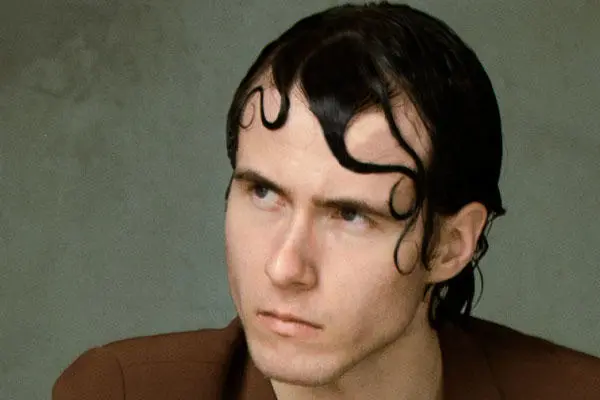
Take charge and lead a wealth of fashion and beauty brands to success with your innovative and creative vision on this practice-based master's degree.
Find out more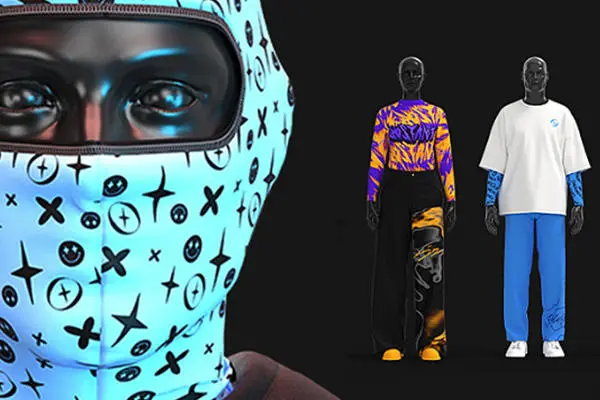
Gain the skills and knowledge to work in the ever-changing global fashion and technological landscapes – whilst contributing to the sustainable future of the fashion, beauty and lifestyle industries.
Find out moreThe tuition fees for the 2026/27 academic year are:
For further information, please visit our tuition fees page.
While most course costs are covered by your tuition fees, some essential resources and optional extras may need to be paid for separately. These additional costs are listed below. For advice on budgeting and managing your money, please contact student.funding@solent.ac.uk.
The 2026/27 additional costs are not yet available. For guidance, previous additional costs have been:
Compulsory costs
Optional costs
Solent University offers a range of bursaries and scholarships that provide financial assistance or waive fees for tuition or accommodation. Each bursary or scholarship has specific eligibility criteria. Check out our bursaries and scholarships pages to find out more.
Cost of living support
At Solent, we understand that the cost of living crisis may be of some concern. To help, we've put together some detailed information to show what support is available and how to make your money go further.
Graduation costs
There is no charge to attend graduation, but you will be required to pay for the rental of your academic gown (approximately £45 per graduate, depending on your award). You may also wish to purchase official photography packages, which range in price from £15 to £200+. Graduation is not compulsory, so if you prefer to have your award sent to you, there is no cost. Extra guest tickets will go on sale after results publication and will be sold on a first-come-first-served basis. The cost per ticket is currently £20. Please note, we do not guarantee there will be any extra tickets available to purchase.
Contact international admissions
Email: Call:Please select an option below:
As a general guide, we look for qualifications that are equivalent to the British high school A-levels.
Applicants from outside the UK will be required to send an electronic portfolio and may be interviewed by video call.
If you are applying from outside the UK, find information about entry requirements, visas and agents for your country here.
For further information about UK, EU and international qualifications, please see our course entry requirements document.
For international students who do not meet the direct entry requirements for this undergraduate degree, our trusted partner, QA Higher Education offers the following pathway programme designed to develop your academic and English language skills:
As a general guide, we look for qualifications that are equivalent to the British high school A-levels.
Applicants from outside the UK will be required to send an electronic portfolio and may be interviewed by video call.
If you are applying from outside the UK, find information about entry requirements, visas and agents for your country here.
For more information about qualifications, please see our course entry requirements document.
For international students who do not meet the direct entry requirements for this undergraduate degree, our trusted partner, QA Higher Education offers the following pathway programme designed to develop your academic and English language skills:
All international applicants need to be aware that the English language requirements to attend Solent University, and the English language requirements to obtain a visa from the Home Office, may be different. This means that if you meet the Solent University language requirement to gain a place on the course, you may still have to meet additional requirements to be granted with a visa by the Home Office.
We strongly advise all applicants to visit the Home Office website which outlines all the requirements for a successful visa application.
Full-time
Any student applying for the first year of a full-time/sandwich undergraduate course must apply through UCAS (University and Colleges Admissions Service). This includes mature, overseas and EU students.
Nearly all schools and colleges offer their students the facility of applying electronically through the UCAS website using 'Apply'; it may also be used by those applying independently in the UK and overseas. This facility and all course information can be found on the UCAS website: www.ucas.com.
Your application should reach UCAS by 14 January if you hope to enter a course the following autumn. Early application is advised for the most popular subject areas. Late applications may be made until the end of June. The UCAS Code for the University is S30, code name SOLNT.
Find out what happens after you apply
Contextual offers
Solent endeavours to offer learning opportunities to students from all backgrounds. When we receive and review an application, we take into consideration the context and personal circumstances of applicants when making a decision, which means our advertised entry tariff could be reduced.
Find out more about Solent's contextual offers
Top-up route:
We welcome applications from students currently studying a Foundation Degree, DipHE, HNC, HND or modules of an undergraduate degree course at another university, who wish to enter directly into Years 2 or 3 of one of our undergraduate degree courses. Please contact our admissions team for more information: contact us
Applicants who do not have English as their first language will be required to demonstrate an approved level of proficiency in the use of the English language. The agreed minimum requirements for this course are:
TOEFL IBT tests taken prior to 21 January 2026
TOEFL IBT tests taken from 21 January 2026
Qualifications are checked before enrolment, and international students must bring their original certificates or certified copies when coming to study at the University.
Pre-Sessional English programme
The University also offers a pre-sessional English programme for international students who wish to improve their level of English before starting a degree course.
Contact international admissions
Email: Call: